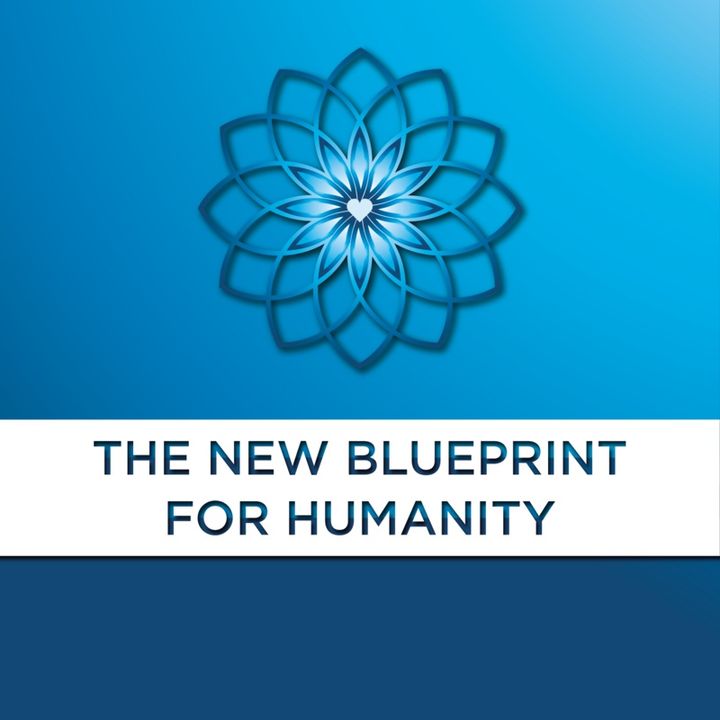Why this is needed:
Schooling: 0-16
Our children are the future of the human race. The current education system has become little more than an indoctrination and control system, preparing children to become useful cogs in “their” world. The loss of emotional intelligence, critical thinking, logic, problem solving and creativity has damaged our children, rather than to prepare them to succeed in life. For many parents, the debt-work treadmill competes for their time with their children. Parents are the best teachers. Parents need to be supported in enriching the lives of their children. Those whom are called “teachers” have little or no actual knowledge of the subjects they are teaching, and only deliver the control system’s indoctrination program by reading the script given to them. Teachers and parents must be retrained and brought to the understanding that children must be taught spirituality, emotional intelligence and an understanding of law, as well as true academic and life skill subjects. The teachers themselves must be taught these subjects and values in order to be the teachers that our children need. Teachers must understand that they are only guardians and mentors, and that the autonomy and free will choice of each child must be honored.
Solution:
- Provide hands-on and online resources to teach and support parents and prospective parents in nurturing and caring for their children from birth through early childhood. Guide parents in teaching their children to develop self-esteem by teaching emotional intelligence, spiritual development, basic cosmic law, and etiquette, by example.
- Make affordable homeschool resources available online, to parents who are able to stay home with their children.
- Re-train existing teachers to nurture children’s spiritual and emotional development and respect their pupils as equals.
- Give teachers and parents the knowledge that they need to teach with truth and integrity. Help teachers to become knowledgeable in the subjects that they teach and to teach those subjects that the children need to learn, in order to function as useful and honorable members of humanity.
- Establish curriculum guidelines that include spirituality, emotional intelligence, law, etiquette, math, reading, grammar, history, art, science and life skills, appropriate for all children, ages 0 through 16.
Age 0 to 5:
Establish a nurturing environment, providing all physical, mental, emotional and spiritual needs of the developing infant and young child. Subjects of learning should include:
- Physical development: reaching for and grasping objects, rolling over, sitting, crawling, walking, running, group activities, games and age-appropriate sports, etc.
- Cognitive development through self-recognition, body autonomy and emotional intelligence.
- Learning their native language and at least one additional language, including phonetic reading.
- Mental stimulation through manipulating their environment, gardening, sequencing, solving puzzles, using Montessori-type materials, cooperating and interacting with others, etc.
- Spiritual self-knowledge supported and allowed to manifest in a natural way, trusting their intuition.
- Critical thinking and verbalizing learned through listening and verbalizing exercises.
- Self-expression through music, drawing, coloring, role playing, group interaction, etc.
- Learning the Golden Rule of law by modeling parents and teachers.
- Free play time to encourage independent thinking and problem solving.
Age 6 to 11:
Develop the mind through increasing awareness of observation abilities, discernment using brain, heart, and communication of their ideas both written and oral. Increase their awareness of their existence. Discover meaning through the semantic or symbolic significance, purpose or values, associated with a concept (mental dimension) or object (reality dimension) and the intended effect. Subjects of learning should include:
- Spiritual development, meditation, expanding their understanding of the law.
- Etiquette and mutual respect, caring and sharing, cooperation over competition or comparison.
- True history.
- Critical (Socratic) thinking, learned by asking questions and internalizing answers through research.
- Phonetic reading and language arts, returning to trivium, (grammar, logic, and rhetoric), methods.
- Mathematics, returning to the quadrivium, (geometry, astronomy, arithmetic and music), methods.
- Teaching self-expression and creativity through the arts; drama, poetry, painting, pottery, music, sewing, carving, etc.
- True science (based on the cause, not the result), including earth, life and physical sciences.
- Life skills such as gardening, grooming, basic self-care and self-reliance (including survival skills).
- Physical Education; building strength, agility, flexibility, stamina, body/mind connection and team building.
Age 12 to 16:
Classes need to be divided into two parts, lecture and discussion groups. Discussion groups need to be limited to six people, the size of optimal communication, with the teacher as a moderator or facilitator. This group builds a child’s eloquence and persuasiveness. These group discussions must occur during school time and not after hours, which is time for family participation in the learning process.
- Expand from the base created in earlier years by focusing on logic and rhetoric built from observation.
- Begin in-depth study of spiritual development and the law.
- Effective communication skills as it pertains to emotional intelligence.
- Develop their confidence in their ability to teach themselves, in making free will choices and in understanding what it means to give or deny consent.
- Teach the principles of self-mastery and an understanding of the importance of avoiding peer pressure and the 6 hooks (alcohol, drugs, religion, money, sex and ego), at this impressionable and vulnerable stage of their lives.
- Continued learning of language arts, math, history, science, arts, physical education, etc.
- Expand basic life skills to include computer science and skills, personal finances, wood working, mechanics, metal working, crafts, homemaking skills, business creation and ethics, etc.
- Begin apprenticeship programs for children who may not be academically inclined and tend to struggle academically, leading to a lack of self-esteem or who lean toward practical, hands-on learning that fosters non-academic abilities. The essence of an apprenticeship program for ages 12-16, formal or informal, can cover many interests at once and involve practical hands-on learning over theory, guided by mentors who have a lifetime of experience to share.
Adult Apprenticeship Programs 17 and Up:
The military has become the primary source of trades training in order to encourage enlistment, while trade skills and work have been denigrated, as managerial and executive positions have been glorified. We must rebuild our local factories and small businesses in order to attain greater self-sufficiency on a community and personal level, and to that end we require a more competent workforce. Training and schooling must be reassessed as a whole, and its finances and sources of guidance scrutinized, especially that done by religious organizations, corporations, militaries, agencies and politically motivated groups.
- Ban education programs and remove teachers and administrators that cause division, promote political agendas and disseminate false information.
- Defund schools, universities and programs that do not serve the people.
- Repurpose abandoned former educational/research facilities as appropriate, to serve community needs, including conversion to commercial properties and/or establishments for learning.
- In every school, shut down every department except for security, registration and accounting.
- Allow for impromptu and also scheduled and private teaching sessions paid for with a donation or registration fee to fund them, until they are reassessed. Thereby classes can continue, but with a new set of principles.
- Restart the apprenticeship program by implementing tax breaks as incentives, providing free healthcare and accident insurance for apprentices/trainees, and support for businesses that create their own training and apprenticeship programs.
- Assess priorities for training purposes, including but not limited to critical occupations in transportation, infrastructure, construction, communications, agriculture and food processing.
- Consider building training-focused cooperatives in areas with turn-key operations such as abandoned hotels, factories and farms.
- Encourage inter-departmental training in businesses and organizations to maximize employee flexibility as well as understanding of the operation as a whole.
- Teach the cooperative business model, which gives employees a greater stake in the profitability of the company, and lowers overall costs as workers require less managerial interference and oversight.
Who gains:
Everyone gains from a teaching model that unlocks humanity’s full potential and creates a lifetime of learning culture that eliminates illiteracy. Society gains training and learning, free from corporate, agency and military interests. Schools and training centers gain by regaining respect of students, communities and the people as a whole.
Who benefits:
Parents, children and humanity benefit when parents and teachers rejoice in all children’s self-esteem, emotional intelligence, spirituality, understanding of law, and their ability to teach themselves, throughout their lives. Communities benefit when they can produce the basics of life and thereby retain sovereignty. Families benefit when bread-winners have steady jobs or businesses, multiple skill sets (social and technical) and can take home a more positive outlook on working. Employees benefit because they have a stake in the efficiency and profitability of the company as well as potential for higher pay and advancement and/or profits.






